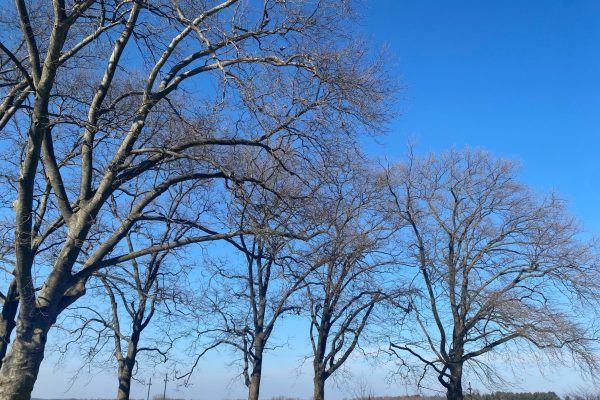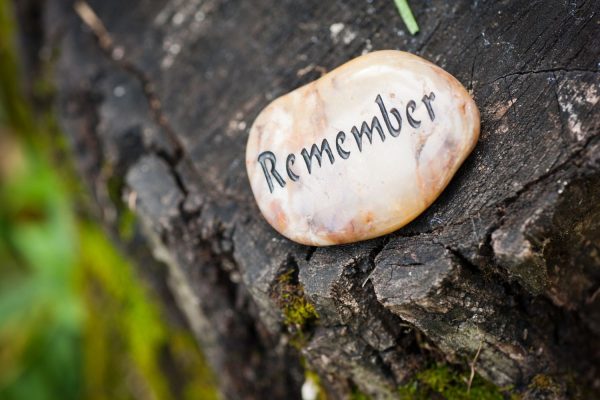Our sages of blessed memory asked what was the tree of knowledge from which Adam and Eve ate. Four rabbis gave four different answers:
Rabbi Meir said: It was wheat…
Rabbi Yehuda Bar Ela’I said it was grapes…
Rabbi Abba of Acre said it was an etrog…
Rabbi Yossi said it was figs…(Genesis Rabbah 19)
We take up bread or a wheat product, taste it and say:
When we eat bread so naturally and comfortably, we remember those whose bread is spare and who sorrowfully ration it among their family. Through eating this bread we make a commitment to act to reduce poverty and the social gaps in our society.
We take up raisins or wine made from grapes, taste and say:
Through tasting the fruit of the vine we state that, just as the tendrils of the vine encircle and latch on to whatever they find in their way, it is incumbent upon us to embrace and take in the sick, the elderly, the broken and the worn out of our society, never abandoning them.
We take up a fig, taste it and say:
“And every person shall sit under their vine and under their fig tree, and none shall make them afraid, for God has spoken” (Micah 4:4). When eating the fig we reaffirm our commitment to enable every person to live peacefully in his or her home and to support themselves in dignity. We reaffirm our obligation to protest those who damage the homes, the lands and the property of fellow human beings.
We take up a citrus fruit symbolizing the etrog, taste it and say:
The citrus fruit symbolizes the person that has both knowledge of Torah and good deeds (Leviticus Rabbah 30:12) Through eating the citrus, we remind ourselves, that teaching alone is not sufficient, but must be combined with action (Pirkei Avot 1:14). It is not enough to believe in justice. We must work determinedly to achieve justice.
Through eating those fruits that our sages of blessed memory identified as the fruit of the tree of knowledge, we recall the best of creation, in its beauty and completeness. We remember that every human being, by virtue of being a human being, is the pinnacle of creation. Our task as caretakers is to preserve the world, to work it, and to repair it. Our task is to make the State of Israel more just, so that she will be a blessing to all of her inhabitants and those who love her.
Barukh Atah Adonai, asher khanan otanu bevina lehavkhin bein tov uvein ra uvayekholet livkhor batov.
Blessed are you Adonai, Who grants us the insight to distinguish between good and evil, and the ability to choose good.
NOTE: The Hebrew, below, is Rabbi Marx’s original work and intended primarily for our Israeli users.
פרי עץ הדעת על צלחת סדר טו בשבט
מאת הרבָּה דליה מרקס
חכמינו זכרם לברכה שאלו מה היה עץ הדעת שממנו אכלו אדם וחוה.
ארבעה רבנים הציעו ארבע תשובות –
ר’ מאיר אומר: חטים היו […]
ר’ יהודה בר’ אילעאי אמר ענבים היו […]
ר’ אבא דעכו אמר אתרוג היה […]
ר’ יוסי אומר תאנים היו (בראשית רבה יט)
ניקח בידינו פרוסת לחם או מאפה העשוי מחִטה, נטעם ונאמר:
באכלנו את הלחם בטבעיות ובנינוחות, אנו זוכרים את אלה שלחמם לחם
צר ובצער הם בוצעים אותו לבני ביתם. באכלנו את הלחם אנו מביעים מחויבות לפעול למיגור העוני ולתיקון הפערים בחברה הישראלית.
ניקח בידינו צימוקים או יין ענבים, נטעם (או נלגום) ונאמר:
בטעמנו את פרי הגפן, אנו אומרים שכשם שקנוקנות הגפן משתרגות ואוחזות את הנקרה על דרכן ואינן מרפות, כך שומה עלינו לחבק ולאמץ את החולים, הקשישים, הפגועים והתשושים שבחברתנו ולא להרפות מהם.
ניקח בידינו תאנה, נטעם ממנה ונאמר:
“וישבו איש תחת גפנו ותחת תאנתו ואין מחריד כי פי ה’ דִּבֵּר”[1]
באכלנו את פרי התאנה, אנחנו מזכירים לעצמנו את המחויבות שלנו לאפשר לכל אדם לחיות בהשקט בביתו ולהתפרנס בכבוד ממעשה ידיוואת החובה שלנו להתקומם נגד אלה הפוגעים בביתם, באדמותיהם וברכושם של בני אדם.
ניקח בידינו פרי עץ הדר המסמל את האתרוג,[2]נטעם ממנו ונאמר:
פרי עץ הדר מסמל אדם שיש בו תורה ויש בו מעשים טובים.[3]
באוכלנו את פרי עץ ההדר, אנחנו מזכירים לעצמנו שלא המדרש הוא העיקר אלא המעשה,[4]ושלא די להאמין בצדק, אלא יש לפעול בנחישות להשגתו.
באוכלנו מן המאכלים שאותם זיהו חז”ל עם פרי עץ הדעת, אנו זוכרים את טוּב הבריאה, את יופיה ואת שלמותה, אנו זוכרים שהאדם, באשר הוא אדם הנו נֶזר הבריאה. תפקידנו לשמור על העולם לעבדו, לשמרו ולתקנו.
תפקידנו לעשות את החברה בישראל צודקת יותר למען תהא ברכה לכל יושביה ואוהביה.
ברוך אתה ה’ אשר חנן אותנו בבינה להבחין בין טוב ובין רע וביכולת לבחור בטוב.
[1] מיכה ד, 4
[2] חז”ל זיהו את “פרי עץ הדר”, שאותו דרשה התורה לקחת בסוכות (ויקרא כג, 40) עם האתרוג.
[3] ויקרא רבה ל, יב
[4] אבות א, יז
Used by permission of the author











